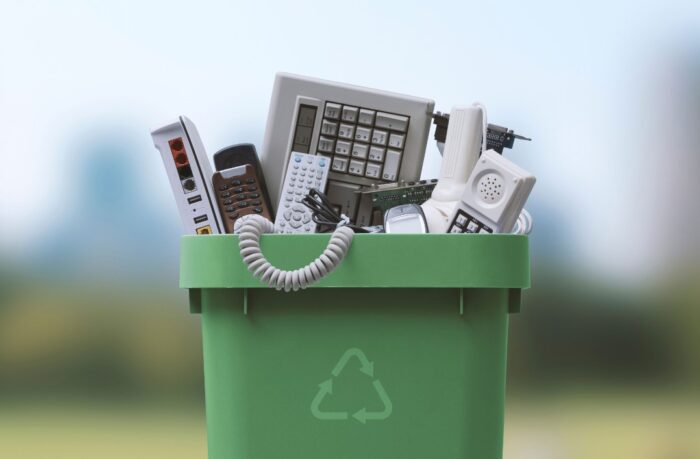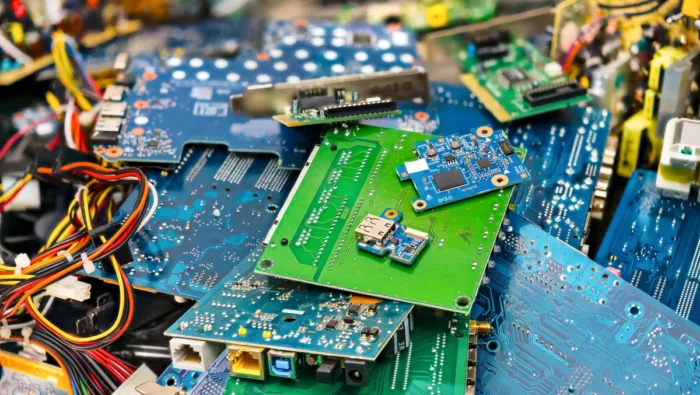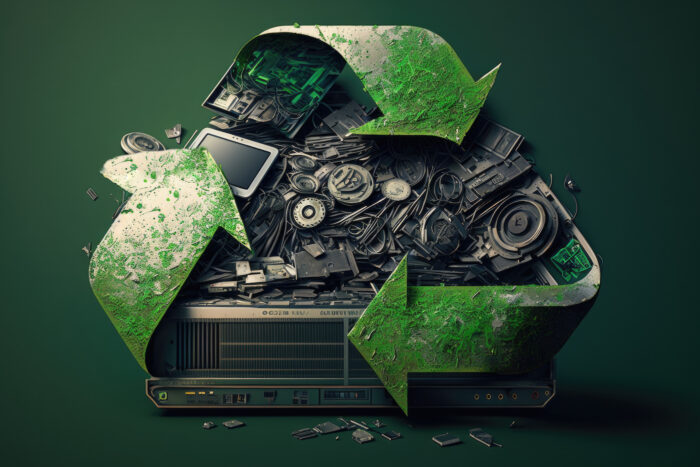
Electronic waste is one of the fastest-growing waste streams globally, with significant environmental impacts if not properly managed. For new businesses, effective management is not only about regulatory compliance but also plays a crucial role in corporate responsibility and sustainability efforts.
It can be a complex task, but several strategies can make it more manageable and even beneficial for businesses just starting.
Why E-Waste Management is Crucial for New Businesses

Devices and appliances that have been abandoned and that may include elements that pose a risk to the environment are referred to as e-waste. By effectively handling their electronic trash, startups may lessen the negative impact on the environment, safeguard their brand’s image, and meet consumer demands for environmentally friendly operations.
Moreover, responsible management can result in cost savings through the recovery of valuable materials and the avoidance of potential fines associated with non-compliance. It’s also an opportunity to innovate in product design and lifecycle, embedding sustainability from the start.
1. Crafting a Policy
Firstly, establishing a comprehensive policy is critical. This document should outline the business’s approach to purchasing, using, and disposing of electronic equipment. It is crucial for aligning internal practices with environmental standards and should be communicated across the organization.
The policy should cover aspects such as the procurement of electronics, steps for reducing e-waste, and guidelines for disposal. By setting clear expectations, new businesses can ensure consistent adherence to management best practices.
Strategies for Reducing E-Waste

2. Adopting a Sustainable Procurement Strategy
By selecting electronics with a longer lifespan or are upgradable, new businesses can significantly reduce their output. It’s essential to choose suppliers that are committed to responsible management and have take-back programs for their products.
Opting for certified refurbished equipment can also contribute to a reduction in e-waste. Such strategies not only help in management but also demonstrate a commitment to sustainability, which can be communicated to customers and stakeholders.
3. Implementing an Effective Recycling Program
Electronic waste recycling should be a core component of any plan. New businesses must focus on establishing partnerships with certified recyclers who ensure that electronics are processed in an environmentally sound manner.
By prioritizing electronic waste recycling, companies can safeguard the environment from the harmful effects of improperly discarded electronics. Additionally, forming these crucial partnerships not only helps with managing it responsibly but also supports the recycling industry, which is vital for the sustainable management of electronic resources.
Best Practices in E-Waste Management

4. Engaging Employees in E-Waste Initiatives
Involving employees is pivotal in effectively managing electronic waste. Awareness campaigns and training programs can empower employees to participate actively in management. Providing incentives for reducing e-trash can also be a powerful motivator.
5. Leveraging Technology
Finally, technology can be a significant asset in managing e-waste. Inventory management software can track the usage and lifecycle of electronic devices, alerting businesses to when it’s time to recycle or upgrade.
Conclusion
In conclusion, new businesses have a unique opportunity to set a precedent for e-waste management. By adopting these tips and integrating them into their operations, they can play a pivotal role in promoting environmental sustainability and positioning themselves as forward-thinking, responsible entities in the marketplace.








